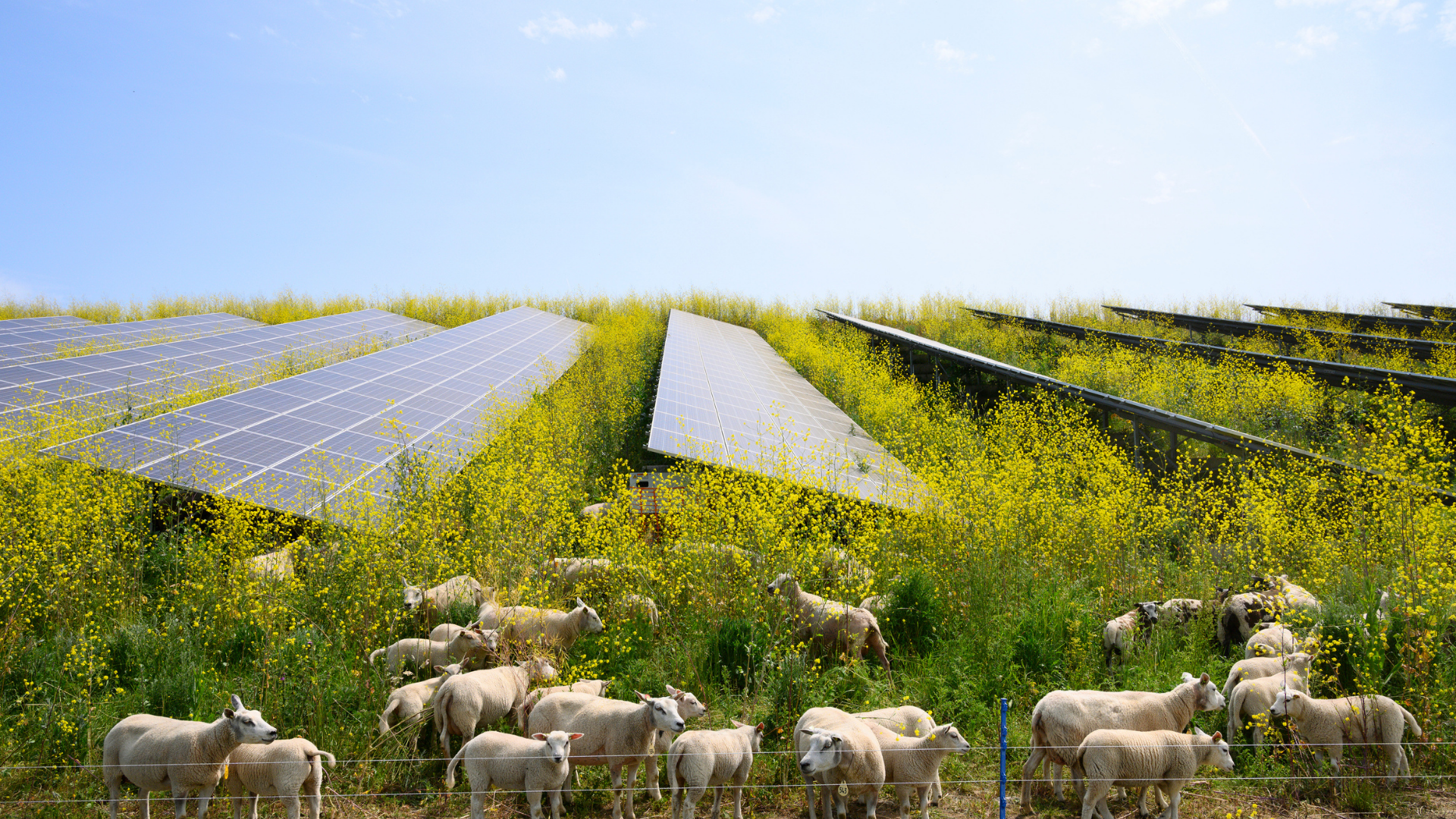
The role of Power Purchase Agreements in decarbonising business
10 minutes
There has been increasing emphasis around the significance of power purchase agreements, or PPAs, in recent years. But what are they and how can they help businesses meet their electricity needs and progress their decarbonisation goals. Leah Timmins, Senior Originator at Shell Energy, explains more.
Why do PPAs exist?
Power purchase agreements (PPAs) are bilateral energy contracts that enable businesses to procure power from a specific, named renewable energy source. PPAs tend to be medium to long-term arrangements, with terms of 10 years or more widely commonplace.
With a marked increase in the development of renewable energy projects around the world,
PPAs have a role to play in attracting private investment into such projects, as they provide a long-term commitment to pay a fixed price per megawatt hour (MWh) for the electricity that will be generated by the renewable asset. This fixed revenue stream can therefore support the development of a new asset.
The term ‘additionality’ is often used when a PPA has the direct effect of adding new renewable energy generation to the grid and the project would not have gone ahead without the PPA.
How do PPAs work?
Agreeing a PPA requires collaboration between two parties – one of whom generates and sells renewable electricity (the generator) and one that purchases energy (known as either the buyer or offtaker).
The PPA sets out the commercial terms for the sale of electricity, including when the project will begin commercial operation, the length of the agreement, the volume and schedule for delivery of power and payment terms. A similar arrangement is also available for green gas (gas produced from renewable sources such as food waste), known as a Gas Purchase Agreement (GPA).
What’s the difference between a PPA and a CPPA?
Unlike PPAs, which are typically agreements between generators and either utility suppliers or traders, Corporate Power Purchase Agreements (CPPAs) see individual businesses procure power from a named renewable energy source.
There are two main types: physical CPPAs and virtual CPPAs. Both see a fixed price agreed (sometimes with escalators) for every contracted MWh generated from the renewable energy source.
In the case of physical CPPAs, the customer receives the physical delivery of the electricity, generally via a transfer or ‘sleeve’ through the customer’s electricity supplier.
Virtual CPPAs, on the other hand, allow corporates to buy energy ‘virtually’. The virtual CPPA is a purely financial transaction whereby the business pays the generator a fixed price as it would for a physical CPPA, but rather than receiving physical electrons generated by the project, the business instead receives the market spot price in its place, along with the associated renewable energy certificates (REGOs).
What are the benefits of CPPAs?
CPPAs offer numerous benefits to businesses. In a volatile power market, companies are financially exposed to the uncertainty of future wholesale prices. CPPAs can offer the buyer or offtaker price certainty for the length of the PPA contract. This can be hugely beneficial for financial planning purposes.
Alongside financial security, CPPAs enable businesses to quantifiably reduce their Scope 2 carbon emissions by demonstrating that a percentage of the power they consume is attributed to a specific renewable generation source.
CPPAs therefore allow businesses to know and publicise the source of their renewable electricity, promoting the positive contribution of the contract to wider society. This can be beneficial from a reputational perspective, especially for companies with ambitious carbon reduction strategies or high Environmental, Social and Corporate Governance (ESG) standards.
Are there any risks associated?
As with any purchase agreement, there are risks associated with entering into a CPPA. Firstly, even though the fixed price provides certainty, there is no guarantee that the CPPA contract price will be lower than the market spot price. What’s more, renewable energy generation is intermittent by its very nature and brings with it several risks that need to be appropriately managed.
‘Shape risk’ reflects the fact that solar and wind do not generate 24/7 and only produce electricity when it is sufficiently sunny or windy. There is additional ‘volume risk’ from weather conditions differing from expected seasonal normal conditions and asset unavailability or curtailment. Lastly, there is also ‘balancing risk’ from actual generation volumes being different from that forecast. All these risk factors mean that the generator could produce more or less power than the offtaker has agreed or expected to buy. Shell Energy can help by building a CPPA bespoke to customers’ needs, managing all or some of these risks.
Finally, both the generator and offtaker are exposed to credit risk, as either party could be left exposed in the event of a contract default. Sufficient credit support is often agreed to alleviate this risk.
What companies are best suited to CPPAs?
Typically, businesses with high power consumption will benefit most, as well as those which are actively looking at renewable energy as part of ambitious corporate strategies to accelerate towards net zero emissions.
One of the first decisions that a business must therefore make when sourcing renewable energy is whether to pursue on-site generation or off-site supply. For those who are unable to take on the responsibility of constructing and operating their own wind or solar generation assets, such as rooftop solar or small-scale wind turbines, CPPAs are a great alternative.
Does Shell Energy offer CPPAs?
Shell Energy offers a variety of CPPA options, including both physically delivered and financially settled (virtual) products, from offshore wind, onshore wind and solar projects in the UK, with volumes dependent upon the customer requirements and terms of 10 years or more.
Shell Energy can manage shape risk, volume risk and balancing risk as required, meaning customers can opt for different structures, such as:
‘Pay as produced’ - the volume varies by half hour and is based on the actual energy generated by the asset;
‘Pay as nominated’ or “pay as forecast” – the volume varies (for example by hour) and is based on the expected generation (the forecast) for the following day;
‘Fixed load’ – the volume is a guaranteed fixed shape of energy for each hour in each day; or
‘Baseload’ – the volume is a guaranteed constant fixed amount of energy each day.
Reducing risk and adding value
CPPAs enable development and operational risk to be shifted to an independent power producer.
Working with our experts can help to identify the best solution for your business. After all, the landscape is competitive and requires a strategic approach to secure the most suitable agreement for your needs.
At Shell Energy, we can not only help you to find the best CPPA for your business, but also manage the tenure and handle the power operations and balancing for you. We can even help you to promote the environmental attributes and keep stakeholders up-to-date on your environmental performance.
To find out more, visit: Energy Solutions | Shell Energy Business
1Shell Energy’s renewable electricity is supplied by the National Grid and certified by Renewable Energy Guarantees of Origin (REGO) certificates, matching electricity bought with the equivalent amount from 100% renewable sources. Shell Energy’s renewable gas is certified by the Green Gas Certification Scheme (GGCS). Through the use of Renewable Gas Guarantee of Origin (RGGO) certificates, a scheme which matches each unit of gas used by a Shell Energy customer with an equivalent amount of biomethane (a gas considered by the GGCS to be green), that has been placed into the grid. For further information on this certification scheme, please see http://www.greengas.org.uk.
View our online content disclaimer.

